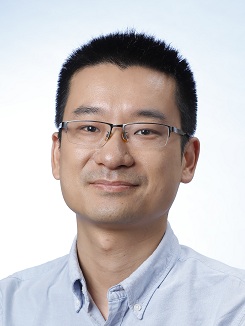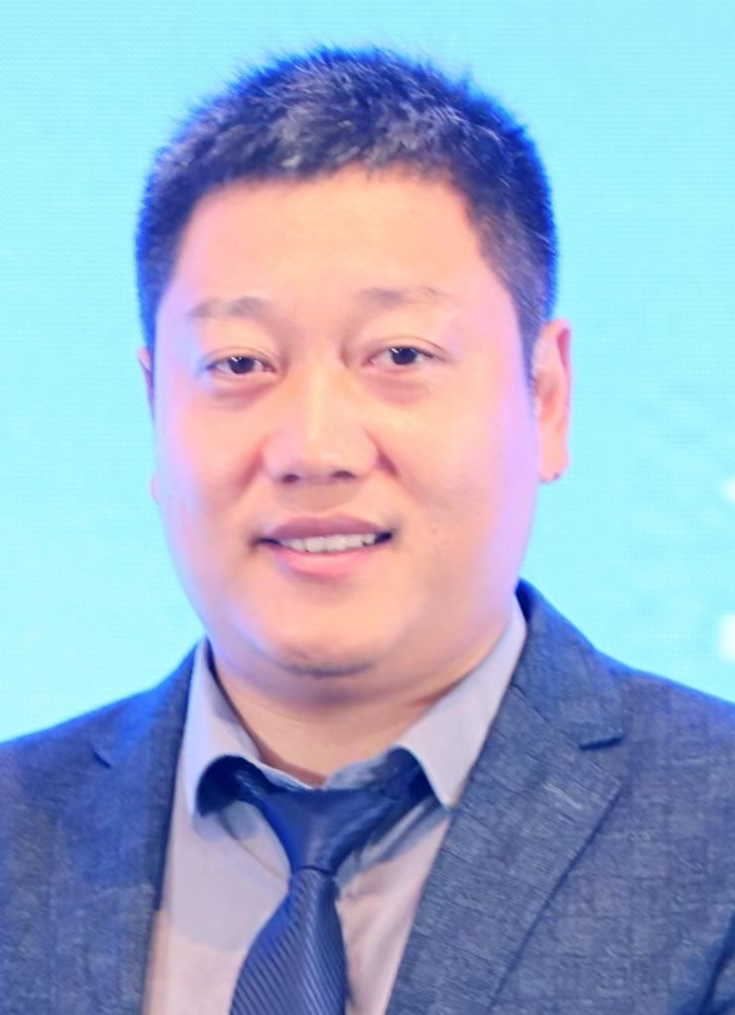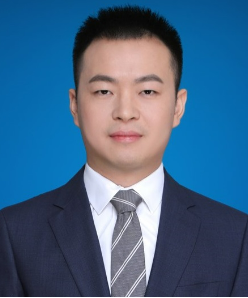KEYNOTE SPEAKERs

Prof. Zhen Lei
University of Chinese Academy of Sciences, China (IEEE Fellow, IAPR Fellow)
Prof. Zhen Lei is a Professor at the AIR Center of the Hong Kong Institute of Chinese Academy of Sciences (CAS), Doctoral Supervisor, Researcher at the Institute of Automation of CAS, Faculty Professor at the University of Chinese Academy of Sciences, and Visiting Professor at The Hong Kong Polytechnic University. As an IEEE Fellow and IAPR Fellow, he has been recognized as a Highly Cited Chinese Researcher (2020-2024) and ranked among the World’s Top 2% Most Influential Scientists, with over 35,000 citations (H-index: 88) on Google Scholar. His research focuses on biometric recognition, image/video analysis and understanding, and fundamental AI theories. He was honored with the 2019 IAPR International Biometrics Young Investigator Award (a biennial award granted to one global scholar under 40), the 2019 National Science and Technology Progress Award (Second Prize), the 2021 China Electronics Society Technology Invention Award (First Prize), and the 2022 China Society of Image and Graphics Natural Science Award (Second Prize). His achievements include 200+ publications in top-tier journals/conferences, 30+ authorized invention patents, and contributions to 2 national standards and 7 industry standards.
Shiliang Sun received the B.E. degree in Automation from Beijing University of Aeronautics and Astronautics, Beijing, China, in 2002 and the Ph.D. degree in Pattern Recognition and Intelligent Systems from Tsinghua University, Beijing, China, in 2007.
He is a Professor with the Department of Automation and the Head of the Pattern Recognition and Machine Learning Research Group, Shanghai Jiao Tong University, Shanghai, China. In 2004, he was entitled Microsoft Fellow. From 2009 to 2010, he was a Visiting Researcher with the Department of Computer Science, Centre for Computational Statistics and Machine Learning, University College London, London, U.K. In 2014, he was a Visiting Researcher with the Department of Electrical Engineering, Columbia University, New York, NY, USA. From 2011 to 2023, he was a Full Professor at East China Normal University where he founded the Pattern Recognition and Machine Learning Research Group in 2007. His research results have expounded in 200+ publications at peer-reviewed journals and conferences, such as JMLR, IEEE TPAMI, IEEE TNNLS, ICML and NeurIPS, and multiple academic monographs and textbooks, such as Multiview Machine Learning, and Pattern Recognition and Machine Learning.

Prof. Shiliang Sun
Shanghai Jiao Tong University, China

Prof. Arif Mahmood
Information Technology University, Pakistan
Dr. Arif Mahmood is Dean Faculty of Sciences and a Professor in Computer Science Department, founding Director of Center for Artificial Intelligence and Robot Vision (CAI&RV) at Information Technology University, Lahore, Pakistan. Before joining ITU, he served as a Research Assistant Professor at the Department of Computer Science and Software Engineering, and later at the Department of Mathematics and Statistics in University of the Western Australia. He also worked as a Postdoctoral Researcher at the College of Engineering in Qatar University. He was as “Computer Vision Consultant” with King Abdulaziz University, Jeddah, Saudi Arabia and Huazhong University of Science and Technology, China in 2021. In 2015 he successfully authored Linkage Project grant from Australian Research Council (ARC): “Machine Learning for Fracture Risk Assessment from Simple Radiography” with industry partners. He was `Outstanding Reviewer’ in CVPR 2023.
He has teaching and research experience at several national and international universities. He has also conducted a three-day seminar course in 2021 on Computer Vision research in Guangdong University of Petrochemical Technology, China. He was Program Committee member in FIT 2017 and in International Workshop on “Robust Subspace Learning and Applications in Computer Vision” in conjunction with ICCV 2017, ICCV 2019, and ICCV2021. His major research interests include Robot Vision, Data Science, and Machine Learning. He has been publishing extensively in prestigious journals including IEEE TPAMI, IJCV, MEDIA, IEEE TIP, IEEE TCSVT, IEEE TCC, IEEE TSC, Information Fusion, and IEEE TKDE. He has presented his work at over 17 conferences worldwide including very prestigious conference such as CVPR, ECCV, ACCV, BMVC, and WACV.
Ye Mang is a professor at the School of Computer Science, Wuhan University, the director of the Department of Intelligent Science, a PI at the Taikang Life Medical Center, and a doctoral supervisor. He is a national high-level young talent, a talent supported by the China Association for Science and Technology’s Youth Program, and a high-level talent in Hubei Province. He received his Ph.D. from Hong Kong Baptist University in 2019 and returned to Wuhan University as a professor at the end of 2020. Previously, he served as a research scientist at the Origins Artificial Intelligence Institute in the United Arab Emirates and a visiting scholar at Columbia University in the United States. His main research areas include multimodal retrieval and generation, multimodal semantic understanding, multimodal large models, federated learning, and medical artificial intelligence. He has published over 100 CCF-A class papers as the first or corresponding author, with over 13,000 citations on Google Scholar. His research has been positively evaluated and cited by many renowned scholars, including the “father of deep learning” and Turing Award winner Geoffrey Hinton, and Yann LeCun. He serves as an editorial board member for international SCI journals such as IEEE Transactions on Image Processing (CCF-A class, top in the first zone of the Chinese Academy of Sciences) and IEEE Transactions on Information Forensics and Security (CCF-A class, top in the first zone of the Chinese Academy of Sciences). He has been invited to serve as a program chair for top conferences such as CVPR, ICLR, ICML, ACM MM, NeurIPS, and ECCV. He has led research projects including the National Natural Science Foundation of China-Hong Kong Joint Research Fund, the National Natural Science Foundation of China’s Outstanding Youth (Overseas), the Key Research and Development Program of the Ministry of Science and Technology, and the Key Research and Development Program of Hubei Province. He has also collaborated with multiple enterprises such as Huawei, Hisense, and Meiqi Interactive on technology and application implementation.

Prof. Mang Ye
Wuhan University, China
